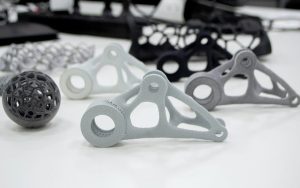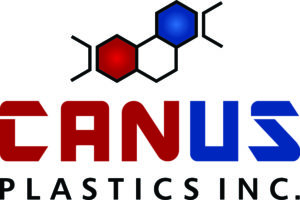Solving Adhesion Problems with Different Plastic Types

Plastic products are all around us, from everyday household items to complex components in machinery. Ensuring that these products stay intact and serve their purpose well often relies on good adhesion.
Adhesion is more than just sticking things together—it’s about creating a strong bond that can withstand wear and tear. When plastics lack proper adhesion, they can fall apart or fail to perform as expected. This is why finding effective ways to solve adhesion problems is so important.
Plastics come in many types, each with its own characteristics. This diversity presents a challenge when it comes to creating strong adhesion. Some plastics may resist bonding due to their smooth surfaces or different compositions.
These hurdles require specific approaches to ensure that the bonds formed are not only strong but long-lasting. Let’s explore how understanding plastic types and their adhesion challenges can help in dealing with these issues effectively.
Understanding Plastic Types and Their Adhesion Challenges
Different plastics used in manufacturing have unique properties that affect how well they bond. Here’s a breakdown of some common types and their characteristics:
– Polyethylene (PE): Often found in packaging materials, this plastic has a non-polar surface that makes adhesion tricky.
– Polypropylene (PP): Like PE, it is used in a variety of products, and its low energy surface requires special treatments for proper bonding.
– Polyvinyl Chloride (PVC): Common in construction applications, its adherence often depends on its plasticizers which can vary.
Understanding these plastics means recognizing why they might resist adhesion. Most problems come down to surface energy and composition. Plastics like PE and PP have low surface energy, making it hard for adhesives to stick. They might feel smooth to the touch, which can prevent a solid bond. In Ottawa and regions with similar climate conditions, temperature changes can also affect adhesion, making it even more crucial to select the right methods for different materials.
Awareness of these elements helps pinpoint the solutions needed. When you know a plastic’s surface properties, it becomes easier to choose the best bonding techniques. This is especially true when environmental factors play a role, as they can influence how adhesives perform over time. By understanding the specific challenges linked to different plastic types, we can start to tackle the adhesion issues effectively.
Techniques for Improving Adhesion on Different Plastics
Improving adhesion involves a combination of preparation and the right techniques. Pre-treatment processes are a vital first step. Cleaning the surface to remove dust and grease is essential, as even small particles can disrupt adhesion.
Sanding provides a rough texture for better grip, especially on smoother surfaces like polyethylene and polypropylene. Chemical treatments, such as using primers or etching agents, can increase surface energy, making the plastic more receptive to adhesives.
Choosing the right adhesive is just as important as the preparation itself. Different plastics need different types of glue to ensure a strong bond. For instance, epoxy is versatile but works best with plastics like PVC due to its durability and high-strength characteristics.
On the other hand, some plastics might perform better with polyurethane adhesives, known for their flexibility and resistance to weather changes, especially crucial in variable climates like Ottawa’s.
Here’s a simple guide for matching adhesives to plastics:
– Polyethylene (PE): Use a solvent-based adhesive with a primer to ensure better bonding.
– Polypropylene (PP): A two-part epoxy or hot melt glue often completes the job.
– Polyvinyl Chloride (PVC): Solvent cements or two-part epoxies are usually effective.
Advanced Solutions for Persistent Adhesion Problems
When conventional methods don’t quite cut it, advanced solutions can step in. Plasma treatment and flame treatment are two innovative techniques gaining traction for enhancing adhesion. They work by altering the plastic’s surface properties without damaging the material.
Plasma treatment involves using ionized gas to clean and activate the surface, increasing its energy and making adhesives more effective. Flame treatment operates similarly, using a controlled flame to increase the surface energy quickly. Both methods are efficient, eco-friendly, and can significantly improve adhesion for stubborn plastics that resist traditional bonding methods.
Why Professional Expertise Matters
For complex projects or when tackling unfamiliar plastics, relying on expert help can save a lot of headaches. Professionals understand the nuances of different adhesives and treatments like nobody else. They’re equipped to handle everything from routine bonding challenges to intricate adhesion issues, ensuring reliable results.
Partnering with experienced professionals means accessing in-depth knowledge and expertise tailored to unique needs and circumstances. The climate’s impact in Ottawa, specific plastic combinations, or even particular conditions under which the product functions, can all influence the choice of methods and materials. With expert assistance, one can navigate these variables with confidence, ensuring the plastic products receive the reliable bonds they need.
Ensuring Long-Lasting Adhesion in Your Plastic Projects
Once strong adhesion is achieved, maintenance helps keep it that way. Proper storage, like avoiding extreme temperatures and humidity, protects the adhesive bond. Regular checks can also uncover early signs of failure before they become serious issues.
Staying on top of these maintenance practices will help safeguard your projects and ensure they perform exceptionally well over time. Whether dealing with everyday items or complex assemblies, the combination of the right techniques and expert advice can make all the difference in the longevity and reliability of plastic components.
To ensure your plastic projects benefit from expert knowledge and reliable techniques, consider working with a skilled plastic fabrication company. Canus Plastics Inc. offers a range of solutions tailored to overcome adhesion challenges effectively. Discover more about our innovative approaches and technologies, including the use of specialized adhesives, to achieve lasting results for your projects.

